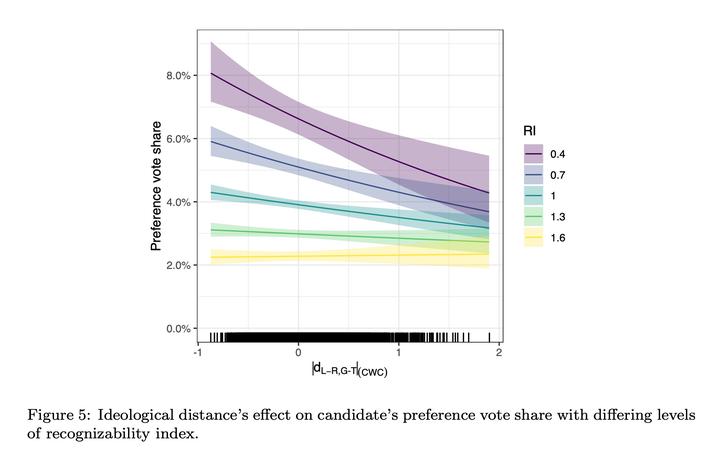When does ideology matter? Party lists, personal attributes and the effect of ideology on intra-party success
 List compisition moderates the importance of candidate ideology on electoral success
List compisition moderates the importance of candidate ideology on electoral successAbstract
Choosing a candidate can be difficult in open-list proportional representation systems, with many candidates on display. Under such circumstances, candidates' personal vote-earning attributes (PVEAs) become useful for voters since PVEAs function as information shortcuts (heuristics) that reduce the cognitive costs of casting a ballot. However, recent research has demonstrated that more cognitively demanding information, namely candidates' ideological positions, also matters for candidates' electoral success. Yet, much is unknown about the circumstances under which ideology comes into play. In this study, we demonstrate that the availability of easily applied heuristics (operationalized via the level of recognizable candidates on party lists) conditions the effect of candidates' ideological positioning on intra-party success. Our analyses show that ideology matters most when the share of recognizable candidates with typical PVEAs on the list is limited. The effect of ideological distance from the party gradually disappears as the share of recognizable candidates on the list increases. The results suggest that when the supply of candidates with PVEAs is limited, voters use ideological cues as the base for their voting decisions.